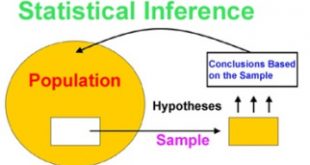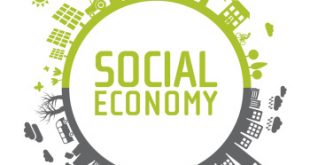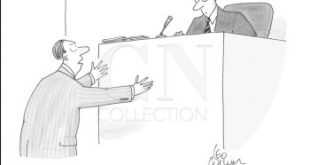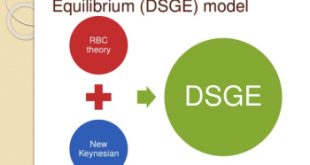Probability vs Maximum Likelihood (student stuff) [embedded content] .[embedded content] Advertisements
Read More »On manipulability and causation
On manipulability and causation If contributions made by statisticians to the understanding of causation are to be taken over with advantage in any specific field of inquiry, then what is crucial is that the right relationship should exist between statistical and subject-matter concerns …The idea of causation as consequential manipulation is apt to research that can be undertaken primarily through experimental methods and, especially to ‘practical science’...
Read More »Social ekonomi — den tredje vägen
Social ekonomi — den tredje vägen Verksamheter inom den sociala ekonomin har allmännytta och/eller medlemsnytta, inte vinstintresse som drivkraft. Förskolor, fritidshem, fritidsgårdar, hemtjänst, äldreboenden, biblioteksfilialer, anläggningar inom kultur- och fritidsområdet är exempel på verksamheter som kan drivas av stiftelser, ideella föreningar eller ekonomiska föreningar … Kunskapen om den sociala ekonomin och dess betydelse för samhällets utveckling...
Read More »Why most published research is wrong
Why most published research is wrong [embedded content] After having mastered all the technicalities of regression analysis and econometrics, students often feel as though they are the masters of the universe. I usually cool them down with a required reading of Christopher Achen‘s modern classic Interpreting and Using Regression. It usually get them back on track again, and they understand that no increase in methodological sophistication … alter the...
Read More »Demystifying economics
The first thing to understand about macroeconomic theory is that it is weirder than you think. The heart of it is the idea that the economy can be thought of as a single infinite-lived individual trading off leisure and consumption over all future time … This approach is formalized in something called the Euler equation … Some version of this equation is the basis of most articles on macroeconomic theory published in a mainstream journal in the past 30 years … The models may...
Read More »Far fuori il mito del NAIRU
Far fuori il mito del NAIRU Anche se è diventata una credenza diffusa, la presunta relazione tra la disoccupazione e l’aumento o la riduzione dei tassi d’inflazione si stava sgretolando, in particolar modo negli anni ’90 del Novecento. Nel 2000 la disoccupazione era scesa al di sotto del 4% senza che l’inflazione decollasse. Dall’inizio della Grande Recessione, il divario tra la teoria e la realtà non ha fatto altro che ampliarsi… Una volta che ci si rende...
Read More »Magic at Malmö Live
Magic at Malmö Live Yours truly visited Malmö Live yesterday. Jan Lundgren Trio with friends gave us all a memorable evening. [embedded content][embedded content] Advertisements
Read More »The logic of climate change denial
The logic of climate change denial Advertisements
Read More »DSGE — a scientific illusion
DSGE — a scientific illusion Dynamic stochastic general equilibrium (DSGE) models remain the work-horse models employed by many academics and research departments at central banks … Prior to the Global Financial Crisis the financial sector played no role in these DSGE models. That limitation is now widely acknowledged and numerous aspects of the financial sector have been incorporated into second and later generation DSGE models … Unfortunately, these...
Read More »Den identitetspolitiska besattheten
Så som det framgår i slutet av romanen så handlar “Brevet från Gertrud” inte enbart om judisk identitet, utan också om den besatthet av identitet som kännetecknar nutiden. Hermele har rätt i att både Martin och jag själv drömmer om en värld där var och en i första hand möts som människor i stället för att ohörda dömas på grund av sin grupptillhörighet, oberoende av om det är fråga om etnicitet, religion, kön, sexuell läggning eller påstådd ras. Efter sin bok om Eichmann...
Read More » Lars P. Syll
Lars P. Syll







